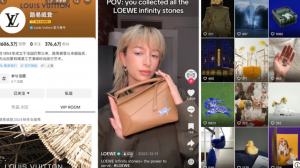The new Shanghai-based program “Flash Cafe” invites musical guests to enjoy a cup of coffee, chat, and perform a song.

As we enter the final weeks of 2021, China’s wide-ranging crackdown on celebrities, fan culture, and the domestic entertainment industry — covered in our recent report, What China’s Big Celebrity Crackdown Means For Luxury — shows no sign of slowing down. Having essentially shut down the competition reality programs that have become a key marketing vehicle for local and global brands in recent years, Chinese authorities now threaten to further muddy the waters of what is allowed and what’s not via a new salvo against programming that is too entertaining.
Last week, two powerful Chinese government agencies — the Central Propaganda Department and the National Radio and Television Administration (NRTA) — met with television stations in Shanghai, Jiangsu, Zhejiang and Hunan to address what they called the “problem of excessive entertainment in satellite television programs.” Although authorities conceded that these stations had made “positive contributions in promoting mainstream values and spreading positive energy” with their programming, the officials cited issues to be rectified, specifically — and frustratingly vaguely — excessive entertainment (过度娱乐化) and celebrity idolization (追星炒星).
According to state media, the agencies “emphasized” that the stations “carry out comprehensive management work” in the field of entertainment and “vigorously promote the core values of socialism.” For their part, the stations said they would “conscientiously implement the interview requirements, comprehensively strengthen rectification and reform, accelerate transformation and development, and use more high-quality television programs to enrich and lead the people’s high-quality spiritual and cultural life.”
While (perhaps purposely) vague, the question now is what this burgeoning effort against “excessive” entertainment could actually mean — and what effect it could have on sponsorships and content-commerce-based marketing initiatives in 2022.
What this could foster is an increase in more “low-key” programming, with shows that are far less flashy and heavily branded than hits from recent years such as The Rap of China, Sisters Who Make Waves, or Fourtry. One new program, Shanghai TV’s Flash Cafe (闪电咖啡馆) takes on a relaxed format that makes sure to include a clear path to purchase. Lifestyle-focused and aimed at young professionals, Flash Cafe — a pilot project by the Shanghai Culture, Broadcasting, Film and Television Group Co., Ltd. (SMG) — anchors its reality-show format in coffee and music, as well as omni-media integration and, naturally, ample product placement. Continue to read the full article here





